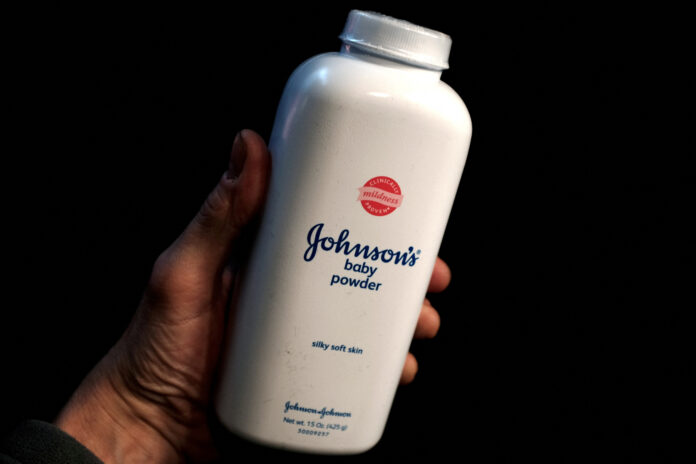
Johnson & Johnson Ordered to Pay $15 Million in Talc-Cancer Lawsuit: Ongoing Legal Battles and Future Implications
Johnson & Johnson (J&J) has been ordered to pay $15 million to a Connecticut man, Evan Plotkin, after a jury found that the company’s talc powder was responsible for causing him to develop mesothelioma, a rare and aggressive form of cancer. Plotkin, who used J&J’s baby powder for decades, filed the lawsuit in 2021 after his diagnosis. The jury’s decision, reached on Tuesday, marks another significant ruling against the pharmaceutical giant over the safety of its talc-based products.
Plotkin’s Case and the Allegations Against J&J
Plotkin, the plaintiff, accused Johnson & Johnson of knowingly selling a product that contained asbestos, a known carcinogen linked to mesothelioma, a cancer affecting the lining of the lungs, abdomen, or heart. In his lawsuit, Plotkin claimed that prolonged use of J&J’s baby powder resulted in his exposure to asbestos, leading to his illness. The case was heard in Fairfield County Superior Court in Connecticut, where the jury ruled in his favor, awarding him $15 million in compensatory damages.
Plotkin’s legal team celebrated the verdict, expressing satisfaction that the jury held Johnson & Johnson accountable for marketing and selling a product they claim was harmful. Ben Braly, Plotkin’s lawyer, issued a statement, saying, “Evan Plotkin and his trial team are thrilled that a jury once again decided to hold Johnson & Johnson accountable for their marketing and sale of a baby powder product that they knew contained asbestos.”
J&J’s Response and Planned Appeal
In response to the ruling, Johnson & Johnson has expressed its intention to appeal the decision. Erik Haas, J&J’s worldwide vice president of litigation, criticized the trial judge’s rulings, which he claims prevented the jury from hearing critical evidence. In a statement, Haas said, “Those facts show that the verdict is irreconcilable with the decades of independent scientific evaluations confirming talc is safe, does not contain asbestos and does not cause cancer.”
Johnson & Johnson has long maintained that its talc products, including its famous baby powder, are safe and free from asbestos contamination. The company has pointed to numerous scientific studies and evaluations over the years that, it claims, have confirmed the safety of its talc-based products. Nevertheless, J&J has faced a barrage of lawsuits from individuals alleging that the company’s talc powder caused cancer, particularly ovarian and other gynecological cancers, as well as mesothelioma.
The Larger Legal Landscape for Johnson & Johnson
The $15 million award to Plotkin is just one part of a much larger legal battle Johnson & Johnson is facing regarding its talc-based products. Over the years, more than 62,000 people have filed lawsuits against the company, alleging that they developed ovarian and other types of cancer due to the use of J&J’s talc products. Many of these plaintiffs claim that J&J’s baby powder was contaminated with asbestos, which caused their cancers.
In response to the wave of litigation, Johnson & Johnson has sought to resolve these claims through a nearly $9 billion settlement in bankruptcy. The settlement aims to address the claims of individuals who allege they developed ovarian and gynecological cancers from using talc-based products. However, this settlement plan has faced opposition from some plaintiffs’ lawyers, who are challenging it in court.
While the proposed settlement has put lawsuits related to gynecological cancers on hold, it does not apply to mesothelioma cases like Plotkin’s. Mesothelioma claims, which make up a smaller portion of the total lawsuits against Johnson & Johnson, continue to proceed through the courts. The company has settled some of these mesothelioma claims in the past but has not proposed a comprehensive national settlement for them.
Talc, Asbestos, and the Controversy
At the heart of these lawsuits is the accusation that J&J’s talc products were tainted with asbestos, a naturally occurring mineral that has been definitively linked to mesothelioma and other cancers. Asbestos is known to cause mesothelioma even in small quantities when inhaled over long periods.
For decades, Johnson & Johnson’s baby powder was a household staple, often marketed as a gentle product for infants and adults alike. However, in recent years, scrutiny over the potential contamination of talc with asbestos has led to a flood of litigation against the company.
In 2020, amid mounting lawsuits and concerns over the safety of its talc products, Johnson & Johnson announced that it would discontinue the sale of talc-based baby powder in the United States. The company stated that the decision was driven by declining demand and the constant misinformation surrounding the safety of its talc products, but many saw it as a response to the growing legal challenges.
Ongoing Legal Battles and Future Implications
While the company no longer sells talc-based products in the U.S., it continues to face lawsuits related to its previous sales. The outcome of these cases, including the appeal of Plotkin’s verdict, could have significant financial and reputational implications for Johnson & Johnson.
The nearly $9 billion settlement plan in bankruptcy, which is aimed at resolving the bulk of the ovarian cancer claims, remains in legal limbo as plaintiffs and their attorneys continue to challenge its fairness. If approved, it could potentially close a major chapter in the ongoing litigation against the company. However, with mesothelioma claims still progressing, and plaintiffs like Plotkin continuing to secure victories in court, the legal battles are far from over for Johnson & Johnson.
In the meantime, the company maintains that its talc products are safe, pointing to decades of independent scientific research. But for the thousands of individuals who have brought lawsuits, including those like Evan Plotkin, the legal fight continues, as they seek accountability for the harm they allege was caused by Johnson & Johnson’s talc-based powders.
